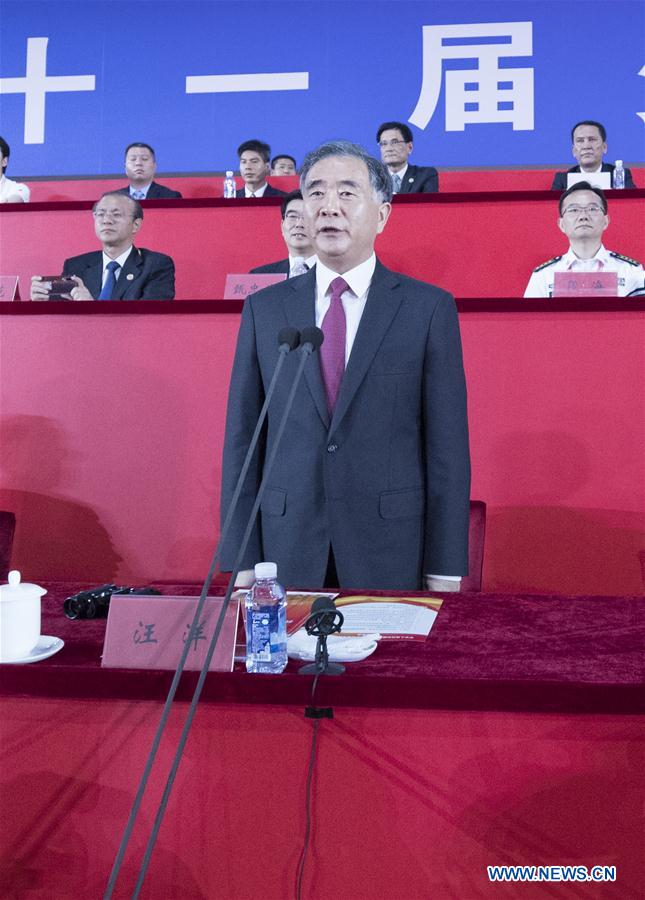 ?
?
Wang Yang, a member of the Standing Committee of the Political Bureau of the Communist Party of China Central Committee and chairman of the National Committee of the Chinese People's Political Consultative Conference, attends the opening ceremony of the 11th Ethnic Games in Zhengzhou, capital of central China's Henan Province, Sept. 8, 2019. (Xinhua/Wang Ye)
ZHENGZHOU, Sept. 8 (Xinhua) -- China's 11th Ethnic Games opened in Zhengzhou, the capital city of central China's Henan Province on Sunday night.
Wang Yang, a member of the Standing Committee of the Political Bureau of the Communist Party of China Central Committee and chairman of the National Committee of the Chinese People's Political Consultative Conference, officially declared the 11th Ethnic Games open.
More than 7,000 athletes from 34 delegations from around China, including a Taiwan Province delegation, will compete in 17 traditional sports encompassing 140 full events and 194 exhibition events during the 9-day Games, which wrap up on September 16.
All equestrian competitions have already been held in Hohhot, Inner Mongolia two months ago.
For the first time, the Chinese Ethnic Games have been held in a city of the nation's central province. The event is also the highest-level sporting gala ever held in Henan.
An impressive opening ceremony highlighted China's rich multicultural fabric, where different cultures enrich one another in harmony.
A favorite of those in the stadium was Twelve Muqam, which is a Uyghur traditional art form combining songs, dances, folk and classical music.
One of the biggest cheers of the evening came when local former Olympic Games winners Jia Zhanbo and Sun Tiantian carried torches and jogged to the "door of solidarity."
China's Ethnic Games aims to promote harmony and cultural blending among China's 56 ethnic groups, and also provides a platform for multiple traditional sporting events.
It was first held in 1953, when nearly 400 athletes from 13 ethnic groups competed in Tianjin's inaugural edition of the Games. 29 years later, the 2nd Ethnic Games was held in Hohhot.
Since 1991, China's Ethnic Games have been a quadrennial event. Athletes from the majority Han ethnic group were allowed to participate in team events starting in 2015, with a limit of one third in each squad.



